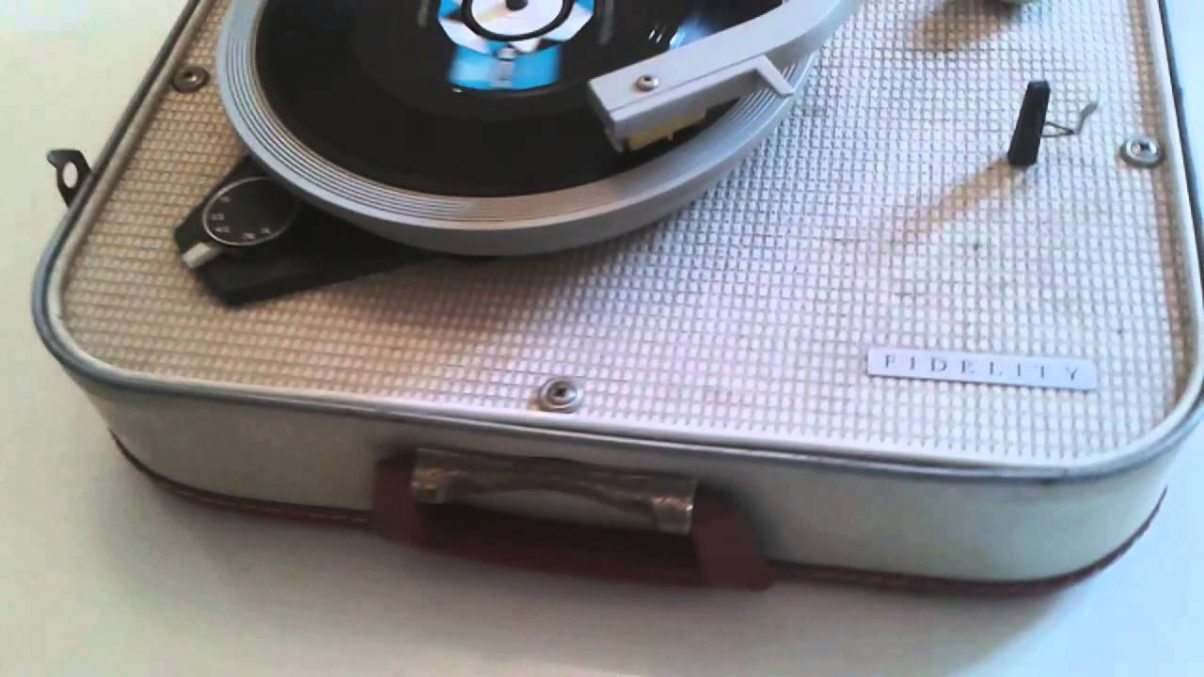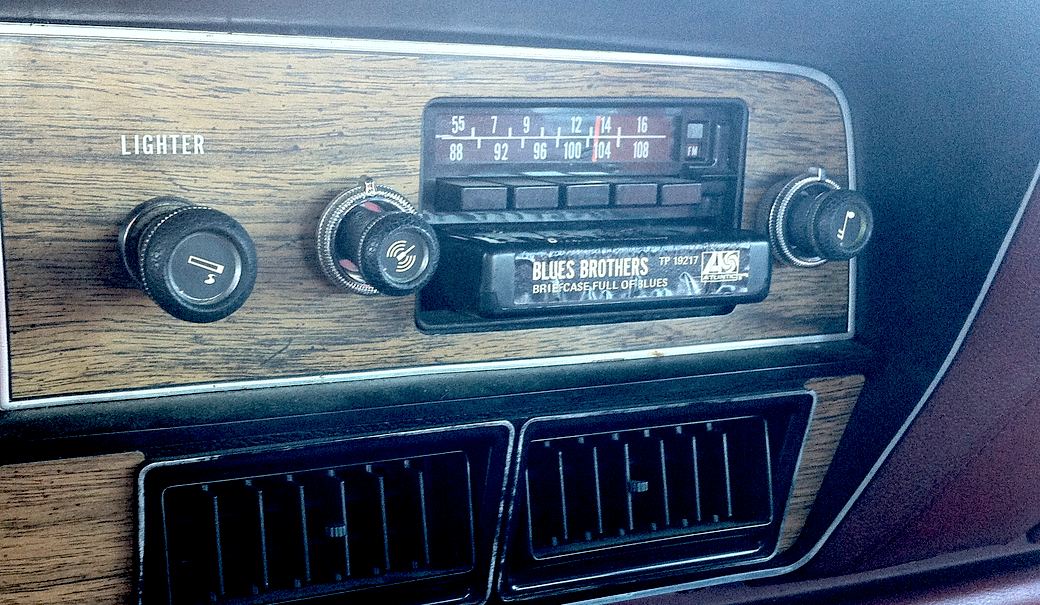
I just re-watched a film I first saw last summer by Harman, an audio product company. The film is called The Distortion of Sound, and it lines up a lot of respected artists and music producers who explain that music should sound great, it sounded great back when they recorded it, and broadly that since digital, music quality has declined, and we absolutely have to do something about it! (In this instance, “doing something about it” implies buying a Harman product. Fair enough, nobody does anything for free nowadays…)
The basic line in the film is that turning CD quality audio into audio that’s convenient for storing on our smartphones and streaming is ruining everyone’s enjoyment of music, and according to at least some of those who Harman interviewed (and rather patronisingly, I thought) we are all too stupid to notice.
So all those services you buy MP3s from online? The satellite and web radio stations you listen to? The complete output of SoundCloud? Any other mainstream digital service you can think of? Most of your DJ sets played digitally? All rubbish. Avoid. You’ve got it wrong. Silly you, eh? And you thought you were having so much fun tut, tut.
Watch for yourself if you’re interested:
OK so it was in places reasonable enough, and yes, yes, music quality is of course important – as DJs we know that better than the general public, because we listen more closely to our music than the general public. Yes of course there’s a difference between an intentionally low quality MP3 and a CD of the same track. (Remember, though, MP3s can be all kinds of qualities, and most people don’t really notice any reduction in quality until the very small size options possible within that format.) But the film is trying to be authoritative, the final word on this matter, yet I feel it missed a lot of uncomfortable truths about sound quality that I want to touch on here.
1. File format is not the most important thing
What the producer of a track does to it in the studio is about a hundred times more important than the file format it ends up being listened to from. You can’t polish a turd, as the saying goes, and a decent track with something worth saying in the first place artistically, that is then properly produced and mastered with a decent dynamic range (ie not too much studio “compression”, which unlike MP3 “compression”, refers to the levelling out of the loud and quiet parts to make it sound louder overall at the expense of dynamic range – something skimmed over / confused in the film) will always sound better than a generic, badly mastered track played on a hi-fi buff’s system from a lossless audio file. Always…
2. Removing 80% of a file’s size does not reduce the audio quality 80%
When you “compress” a digital audio file, you can in fact remove lots of its size without affecting the perceived audio quality a single bit. This is called “lossless” compression. Once you want to make the file even smaller, you have to start taking away bits that change the file forever – this is called “lossy” compression. Yes, this changes it irreperably, but people often insinuate that that just happens indiscriminately.
That’s just not true; we cannot hear a lot of what’s in a recording – we just can’t. Our ears aren’t those of dog. You can remove an awful lot of what’s in a recording without anyone noticing any difference at all, and that’s how lossy compression works. There comes a point when it most definitely does start to be audible (compare a 96kbps MP3 and a 320kbps MP3 recording of the same song to hear this for yourself), but the myth that for every percentage point you reduce a file’s size, the “quality” of a track when it hits your ears reduces by a similar amount is just that – a myth.
3. People have the very best of times listening to music that isn’t the best quality

Ever been to a gig that changed your life where the sound quality was bloody awful? Danced the night away listening to a shite PA system in a god-awful dive of a club? Turned up an oldie on an AM radio station in your car and smiled from ear to ear, getting totally lost in the moment? Sang at the top of your voice to the chart countdown on FM or satellite radio? Played a favourite track on a cassette tape over and over again and decided to form your own band there and then? Listened to a scratched, dull old recording of a great song from a badly pressed 10-tracks-per-side compilation vinyl LP and felt just like you did when you first heard it? Spend your whole damned summer streaming playlists from Spotify? DJed with poor equipment on a badly set-up PA system and had a queue of people telling you that was the best night they’ve ever had?
Congratulations. You are one of the 99% of real people, in real world situations, who have been life-changingly moved by music – music of a quality that the 1% of purists out there want you to feel is simply not good enough. Forget the message, worry about the format, is their message. Damn you for having the best of times nonetheless!
4. Chasing perfection will only hold you back
Sure, we all want the world and everything in it to be perfect. I’d love all PA systems to be set up right, every track in my DJ collection to be lossless audio and well mastered and “all killer no filler” and all those other things that’d make me a perfect DJ – but the world ain’t like that. Getting the job done is what counts, and compromises are made by every human being, every day in this world – or nothing would ever get done!
And that goes for music quality too. As I said right at the beginning, yes – this stuff is important. But not so important as to deny you making decisions about settling for less than perfect. For instance, someone gives a reasonable sounding 128kbps MP3 away on their website of a track they’ve made, a track you just know is going to have a queue of people proclaiming: “what the hell was THAT? It was brilliant!” at your gig tonight. Do you play it or not?

The purists would say no – but I would say you judge the emotion you want to convey using that music and how important it is to what you’re planning in your DJ set, and if that all outweighs five minutes of slightly lower sound quality in your set, then do it! Don’t let dogma and misguided chasing of perfectionism cripple you in your artistic mission. You can always buy a better version later when it’s available. Do the best with what you’ve got. Get the job done.
5. Music is made for where it is going to be listened to
Here’s a truth of the recording industry. Good music producers listen to tracks as they’re making them on all kinds of systems, and that includes the crappy earbuds, streaming file formats and computer speakers that we all listen to music on here in the real world. To a certain extent, it’s now made for how it is listened to “out here”. Now, you can quite legitimately argue that that shouldn’t be necessary, but that’s how it is. Good music producers take this stuff into account.
It comes back to point 1 – really: What the music’s producer / mastering engineer does counts much more than anything else. Club tracks with lots of sub-bass don’t sound good on the radio, and pumping, loud radio mixes with zero dynamic range don’t sound good in clubs. It’s nothing to do with the file format. Producers make compromises as a necessary part of their job, and no expensive gear or miracle software is going to fix that. You can’t beat this. you have to work with it.
6. There was no golden age
People always trot out the line that it was better in the past. Bullshit. Stereo itself didn’t even exist till the late 60s, after the golden era of pop (Golden? How could it have been? It was rubbish-sounding mono!) In the 70s, the eight-track tape cartridge was all the rage, possibly the most ill-advised format on the planet.
Amplification and speakers systems have improved amazingly as technology has moved, and while it was possible to get great sound from well-pressed vinyl records as the 70s and 80s drew on, there were equally terrible pressings on vinyl that sounded rubbish – I know, as a DJ I used to buy them (and play them – see the “Chasing perfection will only hold you back” point above. Trax Recordings, anyone?)

In the film, some of the artist explain how buying a physical record somehow made the music “worth more”, and having the sleeve notes reaffirmed where the artist was coming from and somehow added to the enjoyment of that track or album. While both of these things are true, they have their equivalents in the digital age. If you are careful about the music you allow into your collection, and have an intelligent “music discovery” system (really important for us DJs), and of course if you buy and don’t steal that music, then you can still feel attachment to digital files.
Ever dial up Wikipedia or a blog interview with an artist talking about their latest track or album as you’re listening? Congratulations. You’ve discovered the 21st century “sleeve notes”. This argument is, to be honest, just bleating about progress, it’s not about audio quality at all.
One of the insinuations in the film is that people don’t even know they’re being duped by digital, that somehow anyone involved in digital music distribution is not a music fan, is a content delivery mechanism / number crunching business exec with no care at all about audio quality. Well, if that is true, it always was folks. It’s always been called the “music industry” for a reason. Technology is good. It’s improves things. Don’t be told otherwise… especially by technology companies who want to sell you technology!
7. Technology is good
Just want to labour that last point – “technology is good”. Technology has enabled us to listen to more music than ever before. And we are. And that’s absolutely, life-changingly wonderful. In the video, someone says “sure we can fill our bellies [with music], but we should be filling our souls”. Point is, we can do both.
To take that food analogy further, just because you have a burger for lunch on Wednesday, doesn’t mean you can’t eat cutting edge restaurant food on a Saturday night. We can do both, guys! And we’re not all stupid enough out here to not know the difference! Most normal music fans will happily listen to all kinds of music in all kinds of formats and enjoy it for what it is, fully aware that there’s background noise, or AM radio is never going to sound great, or the club’s PA is wonky, or the live band is playing too loud, or – when they can be bothered / are lucky – that yes, this really is amazing, wonderful sound quality. We do know the difference out here…

If it’s a choice between listening to music only on thousand-dollar audio systems in acoustically deadened listening rooms stroking our beards and admiring how effervescent the hi-hats sound, and rocking out playing a DJ set on a bad PA in a small bar with everything pushed to the max and everyone to a person dancing on tables and screaming for more despite the fact that you (gasp!) just dropped a 128kbps MP3 of a mashup you just knew would rock the place to the rafters – well, I know where I’d rather be.
Finally…
I’m not knocking Harman. they’ve a job to do, products to sell, and I’m sure their stuff sounds great. I’m even intrigued to hear their software for correcting the shortcomings of lossy MP3s; I have no doubt it’ll change how those files sound, and some people may decide that they sound better. Good on them for continuing to push what technology can do. But to imply that suddenly a whole generation’s ears can’t hear differences in music quality is patronising. You only have to listen to the birds outside your window or someone playing an acoustic guitar or a beautiful voice singing in the same room as you to know the best sound quality there is. Against nature, any recording is a compromise.
From a DJ’s perspective, this argument is often used to decry digital DJing, just another string in the bow of those who want find any excuse to belittle the way we do it nowadays. My advice is to smile and do it anyway. Get the best quality audio you can find for the tracks you want to play, care about this stuff enough to do what you can do to not make things worse (don’t redline when DJing, make sure you take the time to properly record and master your mixtapes, and so on), and push on. Have a passion for the music you play and convey that passion to your audiences. People want the music to move them. They can deal with the format, if they care at all.
How much do you think DJs should care about the audio format, and whether files are top-notch quality before playing them? How much attention do you pay to this in your DJ sets? Please share your thoughts below.





![How To DJ Warm Up Sets [Live DJing Q&A With Phil Morse] How To DJ Warm Up Sets [Live DJing Q&A With Phil Morse]](https://cdn.digitaldjtips.com/app/uploads/2023/06/10150042/546463301-warmpup-blank-website.jpg)


![Stems Sound Quality, Pre-Planned Sets, Making Mashups [Live Q&A] Stems Sound Quality, Pre-Planned Sets, Making Mashups [Live Q&A]](https://cdn.digitaldjtips.com/app/uploads/2024/01/18210824/stems-qual-blank-WEBSITE.jpg)